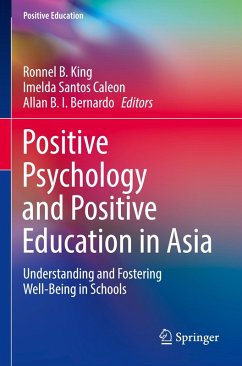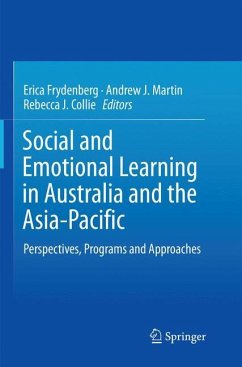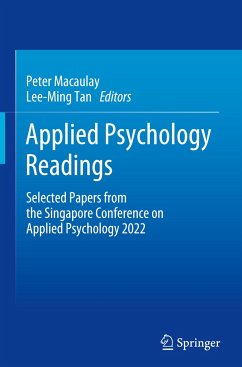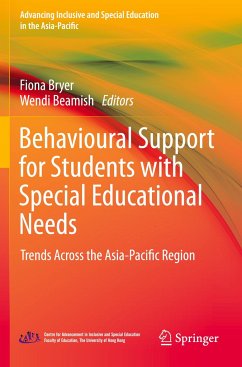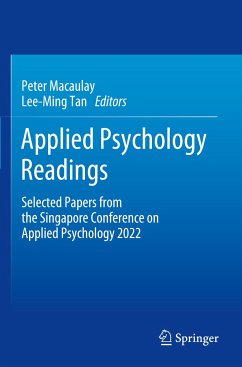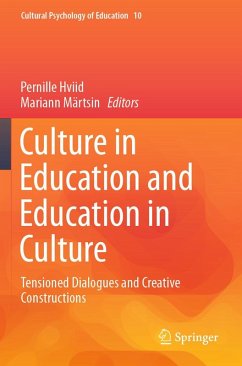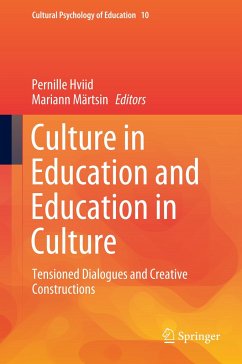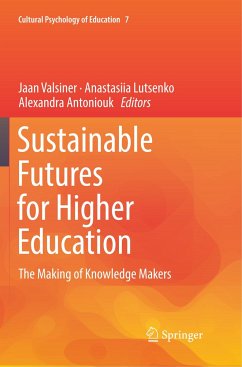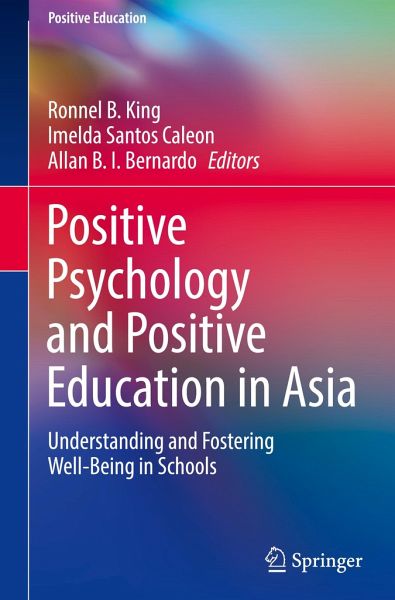
Positive Psychology and Positive Education in Asia
Understanding and Fostering Well-Being in Schools
Herausgegeben: King, Ronnel B.; Caleon, Imelda Santos; Bernardo, Allan B. I.

PAYBACK Punkte
53 °P sammeln!
This book explores students' and teachers' well-being from positive psychology and education perspectives and showcases interventions that optimize well-being in the school context. The book also covers crucial positive psychology and education topics/themes including character strengths, gratitude, growth mindset, grit, resilience, positive emotions, and well-being among others. The chapters include reviews and empirical research based on diverse methodologies, such as correlational, experimental, quasi-experimental, intervention, longitudinal, and qualitative approaches from six different As...
This book explores students' and teachers' well-being from positive psychology and education perspectives and showcases interventions that optimize well-being in the school context. The book also covers crucial positive psychology and education topics/themes including character strengths, gratitude, growth mindset, grit, resilience, positive emotions, and well-being among others. The chapters include reviews and empirical research based on diverse methodologies, such as correlational, experimental, quasi-experimental, intervention, longitudinal, and qualitative approaches from six different Asian sociocultural contexts-Singapore, Hong Kong, Mainland China, Israel, Macau, and Philippines. All the chapters, provide practical pointers for teachers and educators who aim to nurture well-being in schools.





